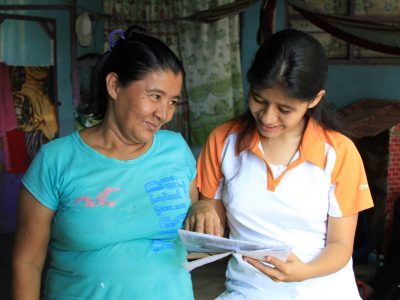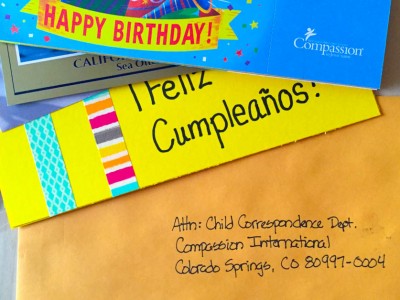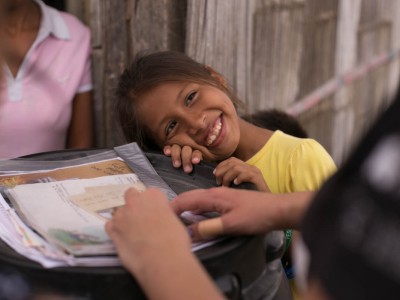
5 Ways to Build a Relationship With the Child You Sponsor
The relational aspect of sponsorship is not just important in getting people to become sponsors. It is important throughout the sponsorship journey because love is best shown in a relational context.

What Children Really Want to Hear From Their Sponsors
Even sponsors who have been writing for years still ask, “What should I write about?” Well, instead of us giving you ideas of what to write this month for the Second Friday Letter-Writing Club, we decided to share from a trusted source what children really want to hear from their sponsors and the importance of letter writing.

Comfort Found in the Words of Her Sponsors
With no money, a drunken, violent father and a community plagued with malnutrition, one little girl found comfort in the words of her sponsors. This powerful story reminds us once again of the importance of letter writing.

Sticks and Stones May Break My Bones
Every person knows that deep down, hurtful words DO hurt. As a parent, I have heard it said over and over that for every negative thing I’ve ever said to my children, it needs to be countered with five to ten positive things. We should change the rhyme to: “Sticks and stones may break my bones, but words will always help me.” Let’s explore the importance of letter writing and the power of your positive words to the child you sponsor.

3 Great Letter-Writing Ideas for the New Letter Delivery Process
Starting this month, Compassion is implementing a new sponsor letter delivery system that will speed up the amount of time it takes to receive a letter! These exciting changes mean some changes to what can be delivered.

How to Encourage a Mother in Poverty
The moms of the children our program serves are like every mom. They pray that their children are healthy. They weep when their children suffer. They work tirelessly to provide for food, shelter and a better future. And you have an opportunity to encourage them too.

What Can I Mail to My Sponsor Child?
If your love language is gifts, this is a hard one for you because you want to be able to send material items along with your letters to show the child you sponsor that you love them. Today, I am going to share with you five things you can mail with your next letter.

Do My Letters Make a Difference?
These few pictures from our moments with these children and their families in Ecuador don’t do it justice. Their emotions were raw and filled with such optimism and hope. A hope given to each of them in the words and truth found in your written words.

Where to Find Great Letter-Writing Ideas
A couple of our blogging friends have put together some great topics and sample letters to help all sponsors feel more comfortable in writing to the children they are investing in.

Share the Bible with Your Sponsored Children
When you write to your sponsored children, encourage them by sharing your favorite Bible stories and Bible verses.

Count Your Blessings
November is the time of year that many people contemplate the blessings they have in life. This month’s Second Friday Letter Writing Club theme focuses on gratitude and blessings.

How To Empower a Child
The framework of donor as hero and the poor as thankful charity cases can do long-term damage. It subtly whispers to a person in poverty, “The donors are special; they have the power. You’re poor and different from them.” This can create a mindset of dependency that says, “I can’t do it myself; I’m dependent on someone else to do things for me.”


